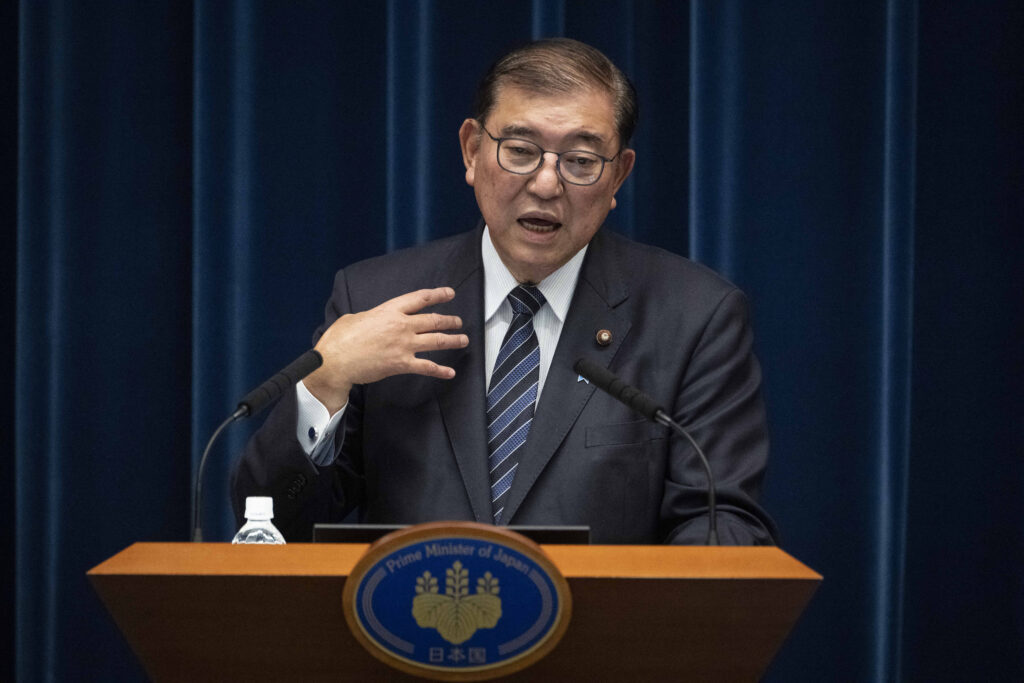
- ARAB NEWS
- 01 Aug 2025

TOKYO: The administration of Japanese Prime Minister ISHIBA Shigeru has been forced to adopt his first budget and tax system reform plans without the support of opposition parties, despite being a minority government.
Ishiba, who took office on Oct. 1, aims to enact the budget for fiscal 2025, which starts next April, by the end of March.
But he is likely to face strong pressure from opposition parties to modify the budget as his ruling bloc lost its majority on the Oct. 27 election for the House of Representatives, the all-important lower chamber of parliament.
Pressure to boost fiscal spending is likely to grow going into an election in summer 2025 for the House of Councillors, the upper parliamentary chamber, putting fiscal consolidation efforts on the back burner.
The tax reform plan reflects the ruling bloc’s proposal to raise the minimum annual taxable income from 1.03 million yen to 1.23 million yen in 2025, after its talks with the opposition Democratic Party for the People, which seeks to increase the threshold to 1.78 million yen, fell apart.
While its talks with the DPFP faltered, the ruling bloc approached another opposition party, Nippon Ishin no Kai (Japan Innovation Party). The ruling coalition thought that a partnership with Nippon Ishin, which holds more Lower House seats than the DPFP does, will help smooth the way for parliamentary deliberations.
Nippon Ishin aims to have the fiscal 2025 budget include its proposal to make education free. The ruling bloc’s approach to Nippon Ishin is a “move to win over an opposition party that wants to show its presence through its signature policy,” a government official said.
The ruling coalition extended its policy talks with the DPFP and Nippon Ishin into next year, discussions likely to focus on how to secure funding for their proposals.
The Finance Ministry estimates that tax revenues will decrease by 7 trillion to 8 trillion yen if the minimum taxable income is raised to 1.78 million yen as proposed by the DPFP.
Nippon Ishin’s proposal to make high school tuition free for all regardless of income level is projected to cost only 600 billion yen annually.
DPFP leader TAMAKI Yuichiro in a post on X complained that “the Finance Ministry’s strategy is to reach an agreement with the party which has the smallest impact on the budget.”
The government faces a rocky path in efforts to bring spending down to levels before they expanded due to the COVID-19 pandemic.
It is clear that the government is relying on tax revenues, expected to hit a record high in fiscal 2025, to improve its fiscal health as it lowers new bond issuances to the lowest level in 17 years.
One risk is of spending spiraling out of control after discussions between ruling and opposition sides.
Ishiba said in a speech at an event hosted by the Research Institute of Japan, a Jiji Press affiliate, on Friday that the government cannot pass a budget or legislation without opposition support.
The main opposition Constitutional Democratic Party of Japan intends to press the government to revise the budget during parliamentary deliberations.
If the passage of the budget and tax reform plans is pushed back to April, the government will be forced to draw up a stopgap budget.
JIJI Press